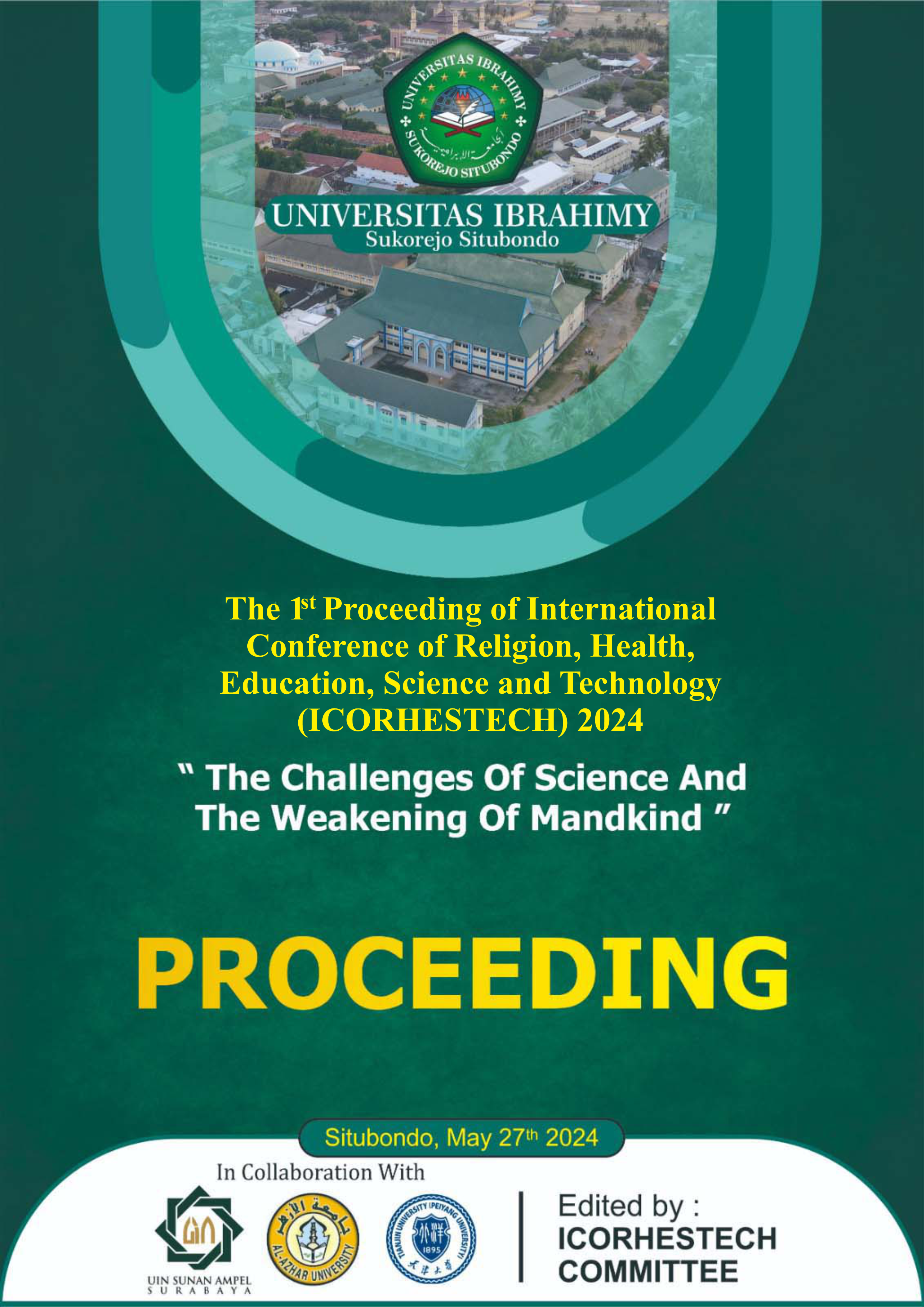Self-Leadership Among Undergraduate Students: A Descriptive Study
DOI:
https://doi.org/10.35316/icorhestech.v1i1.5734Kata Kunci:
self-leadership, undergraduate students, university, leadershipAbstrak
Leadership, in particular self-leadership, plays an important role for individuals, including undergraduate students. Consequently, research on self-leadership needs to be conducted to understand how they lead themselves while studying. This research study describes to what extent there is self-leadership among undergraduate students. Data was collected from undergraduate students attending a public university. Random sampling was used to determine the number of participants who were involved in this research. A questionnaire, the Abbreviated Self-Leadership Questionnaire (ASLQ), was used as the instrument for collecting data. In addition, a descriptive analysis has been employed to understand the level of self-leadership among undergraduate students. The result of this study revealed that 23% of undergraduate students had high self-leadership, 58.6% of undergraduate students had average self-leadership, and 18% of undergraduate students had low self-leadership. This study indicated that leadership development is crucial for undergraduate students studying at religious educational institutions.
Referensi
Asamoah, M. K. (2014). Re-examination of the limitations associated with correlational research. Journal of Educational Research and Reviews, 2(4), 45–52.
Barus, G. (2022). Menakar Kemampuan Self Leadership Mahasiswa Assessing Student’S Self Leadership Ability. Dinamika Pendidikan, 15(1), 62–74.
Carson, J. (2005). The strengths and weaknesses of research designs involving quantitative measures. Journal of Research in Nursing, 10(5), 583–583.
Charis, M., Ammar A, M., Wijongko, D., & Al-Hafizd, M. F. (2010). Kategori Kepemimpinan dalam Islam. Edukasi Nonformal, 1(2), 171–189.
Dewi, A. F. (2022). Melatih Jiwa Kepemimpinan Dalam Meningkatkan Rasa Percaya Diri. Medani: Jurnal Pengabdian Masyarakat, 1(3), 168–175.
Houghton, J. D., Dawley, D., & DiLiello, T. C. (2012). the Abbreviated Self-Leadership Questionnaire (ASLQ): a More Concise Measure of Self-Leadership. International Journal of Leadership Studies, 7(2), 216–232. http://regentuniversityonline.com/acad/global/publications/ijls/new/vol7iss2/IJLS_Vol7Iss2_Houghton_pp216-232.pdf
Isnaini, L. (2020). Strategi Kepemimpinan Abad 21: Visioner, Kreatif, Inovatif, dan Cerdas Emosi. PRODU: Prokurasi Edukasi Jurnal Manajemen Pendidikan Islam, 1(2), 162–182.
Komives, S. R., & Dugan, J. P. (2014). Student Leadership Development: Theory, Research, and Practice (D. V. Day (ed.)). TOxford Handbook of Leadership and Organizations.
Laili, R. N., & Nisak, Z. H. (2022). Peningkatan Self-Leadership Siswa Madrasah Ibtidaiyah Melalui Experiential Learning. Journal of Integrated Elementary Education, 2(1), 63–71.
Lande, A., Ferliandre, A., & Anggraini, M. (2022). Faktor-Faktor Yang Mempengaruhi Pengambilan Keputusan: Gaya Kepemimpinan, Kepribadian Dan Strategi (Suatu Kajian Studi Literatur Manajemen Sumberdaya Manusia). Jurnal Ilmu Hukum, Humaniora Dan Politik, 2(1), 13–22.
Mattayang, B. (2019). Tipe dan Gaya Kepemimpinan: Suatu Tinjauan Teoritis. JEMMA | Journal of Economic, Management and Accounting, 2(2), 45–52.
Putra, I. M. A. D., & Sintaasih, D. K. (2018). Pengaruh Self-Leadership dan Komitmen Organisasional Terhadap Kinerja Karyawan di Hotel Four Points By Sheraton. E-Jurnal Manajemen Unud, 7(8), 4237–4266.
Rahayu, P. P., & Agustina, M. T. (2022). Kepemimpinan Dilihat dari Perspektif Psikologi: Literature Review. JIIP - Jurnal Ilmiah Ilmu Pendidikan, 5(9), 3676–3685.
Shek, D. T. L., Zhu, X., Dou, D., & Tan, L. (2023). Self-leadership as an attribute of service leadership: Its relationship to well-being among university students in Hong Kong. Frontiers in Psychology, 14(January), 1–13.
Syahril, S. (2019). Teori-Teori Kepemimpinan. RI’AYAH, 4(2), 208–215.
Unduhan
Diterbitkan
Cara Mengutip
Terbitan
Bagian
Lisensi








